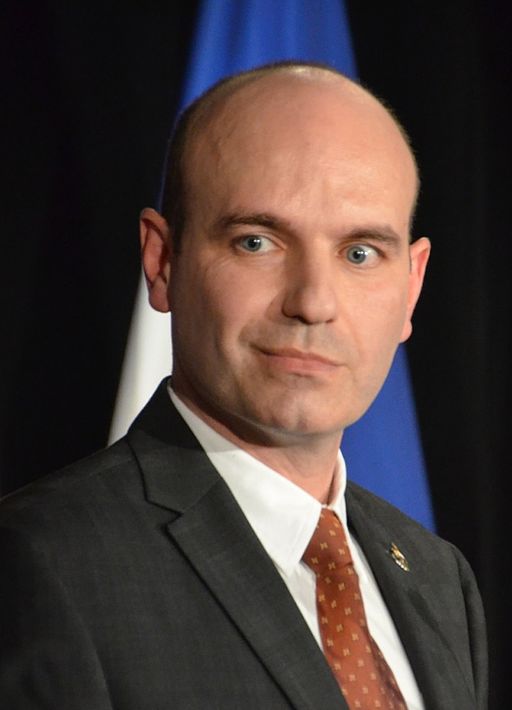Chip in to keep stories like these coming.
On Wednesday, NDP MP and former leadership hopeful Nathan Cullen talked forcefully about what Tom Mulcair has also previously mused about on occasion — forming a coalition government with the Liberals in the event of a minority parliament after the election in order to oust the Harper government.
As noted in the Toronto Star:
NDP MP Nathan Cullen (Skeena–Bulkley Valley) said that while winning a majority remains his party’s goal, ultimately the number-one priority is toppling the Tories.
“The Liberal voters that I know are as fed up with Stephen Harper as anybody,” Cullen told The Canadian Press in an interview on Wednesday.
“But Justin Trudeau will do himself a great deal of damage with progressive voters if he wants to contemplate more years of this Harper government,” Cullen told the wire service.
This should hardly be a shock from Cullen who based his pitch for the top party job in 2012, at least in part, around exactly this principle and idea. As the Star put it at the time:
…he [Cullen] has weathered the leadership battle better than many expected and has championed an idea — cooperation with the Liberals and Greens — that only a few months ago was considered taboo.
It is his pragmatic desire to win, rather than to cast his lot with one flank or the other of the NDP, that has driven him this far.
“There are some who believe that it’s principles or power but you can’t have both. I detest that philosophy,” he says.
Asked about what many NDP supporters have long considered the party’s role in the governing of this country, he replies: “The conscience of the Parliament? Thank you, but no thank you.”
Just in case this hardline repudiation of the historic role of the party — along with the entirely fictitious and facile notion that people who are committed to an ideologically principled leftist political movement somehow do not think that such a movement can ever win or take power — was not clear enough, Cullen went on to offer this deep insight into political theory and what was wrong with socialist continuity within the NDP: “In my generation, socialism means a different thing.” To him, the Star reports, it means communism, and he is no communist.
Indeed.
Given this, and given the pronounced right shift under Mulcair, why anyone is surprised to hear Cullen call for a possible coalition is a little difficult to understand.
Despite — and indeed, in some ways, even because of — the NDP’s lead in the polls, these comments from Cullen and Mulcair make perfect sense. They are intended to appeal to strategic voters (and I have argued previously that reframing the strategic voting narrative is incredibly important for the NDP tactically in the lead up to October), to imprint the NDP as the anti-Harper choice in the minds of Canadians and to put the Liberals on the defensive on this front given that Trudeau has foolishly dug in his heels rejecting the idea — likely out of fear of alienating right-wing Liberal voters.
They also work to soften up NDP diehards and partisans to the reality that there is a very, very good chance that after voting day we will end up with an NDP-Liberal government of some type. While the hacks pretend to think that the NDP are the only “progressive” party and that the Liberals and Tories “are the same,” no one — and certainly not their leaders — actually believes this and the thirst among progressive, left-leaning and even most centrist voters to see Harper shown the door in a minority situation will be almost certainly impossible for either the NDP or Liberals to deny — especially as there is so much less that separates them ideologically than at any other time in our political history.
The Liberals and Conservatives may be “the same” but everyone seems to know that Harper has to go!
While Trudeau continues to throw cold water on the whole notion (though this is much less wise than it once was on his part) were he to, in the end, enter into any formal arrangement with the Conservatives that kept Harper in power, he would be committing political suicide for both himself and what is left of his party.
I think he is well aware of this.
In the jockeying for position and advantage between the bourgeois progressive parties this is simply another predictable and even politically smart maneuver by the NDP that has very little downside for its leadership. The party’s left-wing and anti-capitalist supporters are trapped by the logic that they have used to continue to support the party despite its complete repudiation of anything even remotely like a radical or anti-capitalist platform and the NDP leadership knows they have nowhere electorally to go.
They can be — and are — taken entirely for granted, meaning that there is no left flank for Mulcair and his clique to worry about. This is why the NDP can set its sights completely on Liberal, Green and centrist voters which is what its strategy is and which is what it is doing here rather explicitly.
Regardless of whether it would be principled for the NDP to take power through some arrangement with what many of its faithful see as an “old-line” party of Bay St., it is, after all, pragmatic.
Photo/Wikimedia Commons
Chip in to keep stories like these coming.




